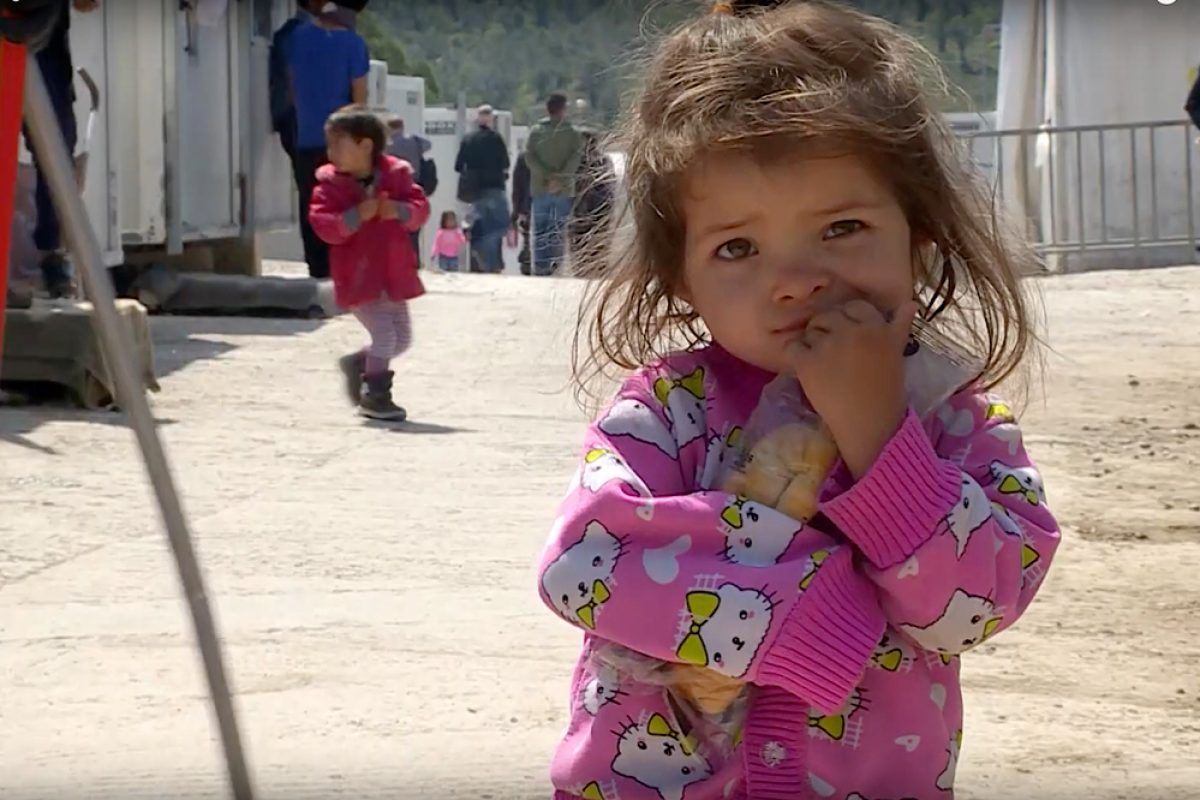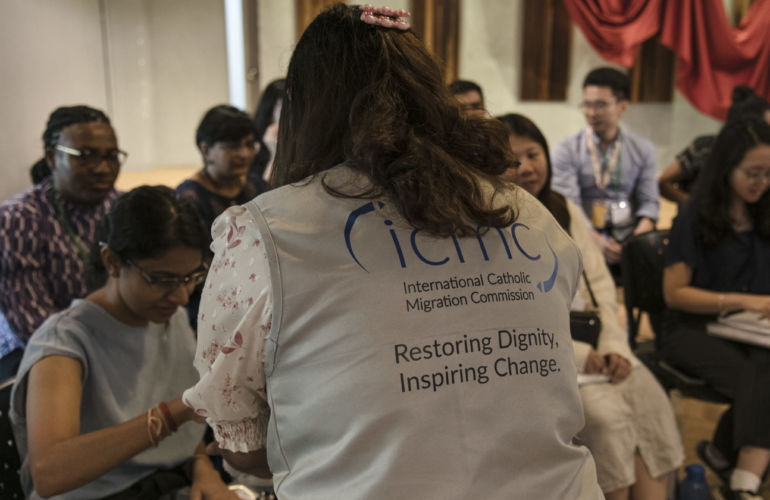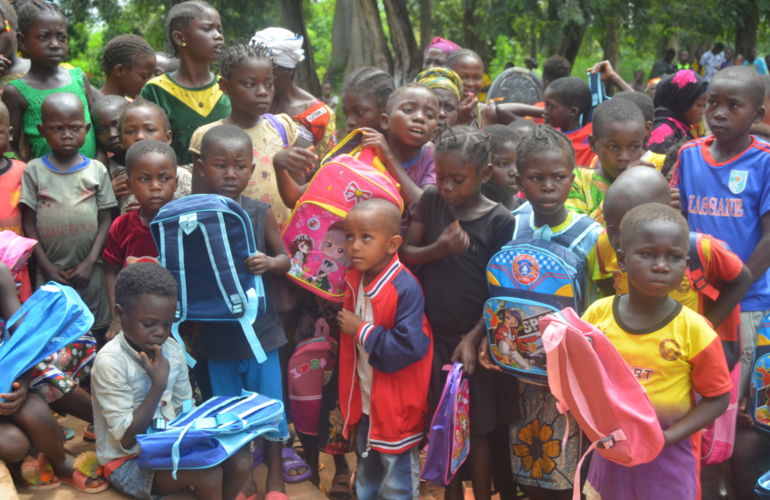European Governments Called to Urgently Relocate Unaccompanied Children From the Greek Islands

Over 1,800 unaccompanied refugee and migrant children currently live on the Greek islands, many of them homeless and enduring inhumane living conditions. ICMC and 64 organizations have called on the governments of European Union member states to urgently relocate these vulnerable children out of Greece, taking into account family links and their best interest.
The conditions on the Greek islands, particularly on the so-called ‘hotspots’ of Lesbos and Samos, are very dire. On Lesbos, where the Moria camp has a reception capacity of around 3,000, there are now approximately 20,000 people, of whom about 1,000 are unaccompanied children. Many of them have no access to toilets, electricity, medical care or education and disease outbreaks are common. In Samos, which was built to accommodate 648 people, there are now 6,800 refugees and asylum-seekers, including approximately 400 unaccompanied children, many of them living in the forest outside the camp.
65 organizations working with refugees and on human rights issues are launching a campaign today calling for the urgent relocation of some 1,800 unaccompanied children stranded on the Greek islands. Something achievable if each EU member state accepted just 70 children, the statement reads.
“Transferring unaccompanied children to mainland Greece is not a sufficient solution,” say the organizations. “Due to a lack of suitable accommodation capacity, unaccompanied asylum-seeking and migrant children there would still face confinement in police stations, be living with unrelated adults in camps or sleeping in the streets without a guardian.”
According to the statement, “the lack of a permanent relocation system for asylum-seekers to other European countries as well as the long delays in processing family reunification requests only makes the situation worse. The need for emergency transfer of unaccompanied children to other EU member states is thus critical.”
Earlier this month, three cardinals sent a letter to the Catholic Bishops’ Conferences in member countries of the European Union about the “situation of dramatic overcrowding and suffering” affecting refugees in Greece. They asked the Bishops Conferences to collaborate with their respective governments in establishing humanitarian programs to transfer refugees from the Greek islands to the continent.
The letter calls attention to the dire living conditions on the Greek islands and the high number of children among the refugees and migrants there. It describes Pope Francis’ example of welcoming refugee families from Lesbos to the Vatican City in 2016 as a path that “could give back hope to about 20,000 adults and over 1,100 unaccompanied minors.”
Why Is the Situation so Dire?
The system of ‘hotspots’ was introduced in 2015 by the European Union. It was a response to the increased arrivals of refugees and migrants experienced mostly by Italy and Greece over that year.
These spaces were meant to be quick registration points where migrants and refugees could be identified and fingerprinted. A relocation scheme was put in place at the same time so that other European countries would welcome a certain number of people directly from the hotspots in Greece and Italy.
However, the long processing times, the implementation of an agreement between the EU and Turkey and the low numbers of people effectively relocated meant that the ‘hotspots’ became overcrowded open reception camps, where living conditions soon became unbearable.
The statement adds that “since their inception, these hotspots have been sites of systematic and sustained human rights violations. The EU Fundamental Rights Agency’s Director Michael O’Flaherty described the EU hotspot Moria as ‘the single most worrying fundamental rights issue that we are confronting anywhere in the European Union’.”
The signatory organizations urge the Greek government to meet “its legal obligations towards unaccompanied migrant and asylum-seeking children”. However, considering the urgency and the gravity of the situation on the ground, they call on “European leaders to take responsibility in providing these children on EU territory with appropriate care and protection.”
Since 2010, the International Catholic Migration Commission (ICMC) has deployed legal and social experts to assist the United Nations High Commissioner for Refugees and the Greek government responding to the needs of refugees and other migrants through the provision of protection monitoring, legal information, child protection, assistance to survivors of sexual and gender-based violence, integration and improvement of detention conditions.


